Projekte
Ulmer Zentrum zur Erforschung und Evaluation der Mensch-Roboter-Interaktion im öffentlichen Raum (ZEN-MRI)
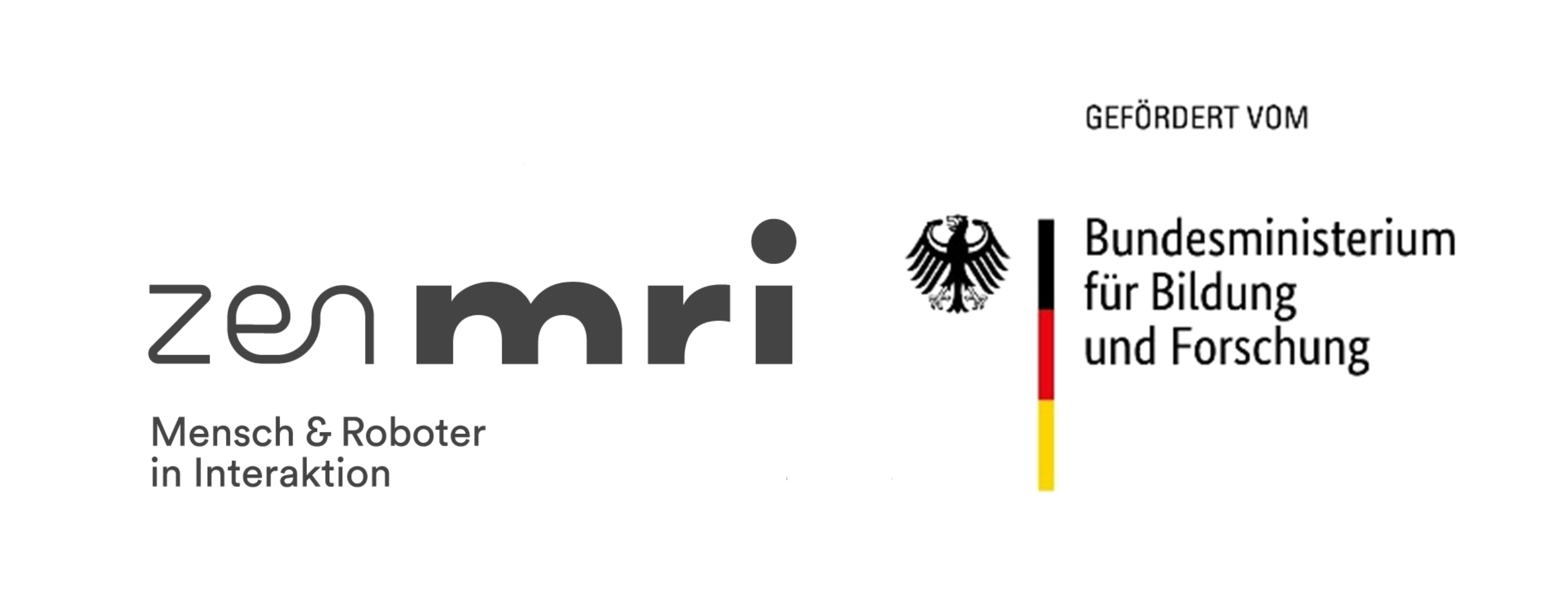
Dauer: 2022-2025
Gefördert von: Bundesministerium für Bildung und Forschung (BMBF)
Kontakt: Martin Baumann
Im Forschungsprojekt ZEN-MRI bringen wir Menschen und Roboter zusammen. Roboter können immer mehr Aufgaben übernehmen - auch im öffentlichen Raum. Im Ulmer Forschungszentrum ZEN-MRI untersuchen wir, wie ein harmonisches Miteinander von Menschen und Robotern geschaffen werden kann.
Das Projekt wird vom Bundesministerium für Bildung und Forschung für den Zeitraum 01.09.2022 - 31.08.2025 mit insgesamt 3,6 Millionen Euro gefördert und von der Abteilung Human Factors der Universität Ulm koordiniert. Während der dreijährigen Projektlaufzeit werden verschiedene autonome Serviceroboter im Kompetenzzentrum mehrfach unter einsatznahen Bedingungen untersucht. Dazu gehört auch ein realistisches Umfeld: Teile der Ulmer Innenstadt verwandeln sich deshalb immer wieder in eine Art Reallabor. Im Projekt wird eine Vielzahl erprobter Forschungsmethoden in einer Reihe von empirischen Feldstudien und qualitativen Erhebungen zum Einsatz kommen. Bei den Proband:innen sollen Erwartungen, Ängste und psychologisches Wohlbefinden im Kontakt mit den Robotern erfasst werden. Ebenso werden Sicherheit, Ethik und Rechtskonformität evaluiert und entsprechende Maßnahmen abgeleitet.
Auf Basis der gewonnenen Erkenntnisse wird die Mensch-Roboter-Interaktion im Projektverlauf iterativ weiterentwickelt. Die Projektergebnisse zielen somit auf das Verständnis und die Beschreibung der Wirkung von Robotern im öffentlichen Raum sowie auf die Ableitung von Maßnahmen auf individueller und systemischer Ebene für deren Integration in das öffentliche Leben.
Weitere Projektpartner sind das Institut für digitale Ethik (IDE) der Hochschule der Medien Stuttgart, die ADLATUS Robotics GmbH, das Fraunhofer-Institut für Arbeitswirtschaft und Organisation (IAO) und die Stadt Ulm.
Weitere Informationen und Updates zum Projekt gibt es auf der Homepage von ZEN-MRI: https://zen-mri.de/
Zusammenstellung geeigneter Sicherheitsindikatoren für die Bewertung der MMI von Level 3 Systemen
Dauer: 2022
Auftraggeber: BASt
Kontakt: Fei Yan, Jürgen Pichen
Das Ziel des Vorhabens ist die Entwicklung einer Checkliste zur Bewertung der Sicherheit von MMI für Level 3 Systeme. Es werden nach der Identifikation relevanter Publikationskanälen und der systematische Erarbeitung einer umfassenden Schlagwortsammlung einschlägige, die Kriterien wissenschaftlicher Arbeiten erfüllende Publikationen gesammelt und analysiert. Über die gefundenen Publikationen wird eine Metaanalyse zur Identifikation der relevanten Sicherheitsindikatoren durchgeführt. Die Ergebnisse der Metaanalyse dienen zur Ergänzung bisher publizierter Ergebnisse zu Sicherheitsindikatoren (inkl. Ergebnisse von Vorgängerprojekten für Level 2 Systeme). Die Ergebnisse der Literaturrecherche und Metanalyse werden zu einer Checkliste verdichtet, die im Rahmen von Experteninterviews evaluiert wird und für die ein Konzept zur Digitalisierung.
Verstehens- und entscheidungsbasierte Modellierung des Kooperationsverhalten zwischen Fahrern in dynamischen Verkehrssituationen und ihre methodologischen Grundlagen (CoMove)
Dauer: 2019-2023
Gefördert von: German Research Foundation (DFG), Projektantrag im SPP 1835 „Kooperativ interagierende Automobile“
Contact: Luisa Heinrich
CoMove ist das Nachfolgeprojekt von "Cooperatively Interacting Vehicles" und konzentriert sich auf die Ausweitung und Verallgemeinerung der Erkenntnisse über die Fahrer-Fahrzeug-Kooperation in kooperativ interagierenden Automobilen auf Situationen des Mischverkehrs. Es werden Situationen betrachtet, in denen die Koordination der Manöverausführung nicht (effizient) gelingt. Die Untersuchung des Verlaufs des dynamischen Kooperationsverhaltens zwischen Fahrern in solchen komplexen Verkehrssituationen und die Entwicklung geeigneter Methoden zur Beschreibung und Bewertung dieses Kooperationsverhaltens stehen im Vordergrund. Als Grundlage für die Entwicklung von Handlungsplanungsstrategien kooperativ interagierender Automobile werden Interaktionsprozesse zwischen den Kooperationspartnern bei der Bewältigung möglicher Konfliktsituationen untersucht, die einerseits für umliegende Fahrer transparent, nachvollziehbar und vorhersehbar sind.
Supporting the Interaction of Humans and Automated Vehicles: Preparing for the Environment of Tomorrow (SHAPE-IT)
Duration: 2019-2023
Funded by: European Union’s Horizon 2020 research and innovation programme under the Marie Skłodowska-Curie grant agreement 860410
Contact: Mohamed Nasser & Sarang Jokhio
According to World Health Organization, 1.25 million people die every year worldwide in traffic collisions, including over 25 000 in the European Union. Recent trends in urbanisation and economic globalisation, as well as dramatic population growth and a concomitant increasing impact on the environment, have created an urgent need for better transport solutions.
To cope with current challenges in transport sector, vehicle automation has been identified as a game-changer, promising substantial reductions in road-traffic fatalities and while improving mobility thereby also decreasing GHG emissions. However, traffic is a complex social system and the introduction of Automated Vehicles (AVs) in a mix traffic will create new interactions and challenges. If AVs are to be safely and successfully deployed, understanding their interaction with users (both inside and outside AVs) is essential, in particular for complex urban traffic.
The ultimate goal of SHAPE-IT is to facilitate safe, acceptable, and desirable integration of user-centered and transparent AVs into the mixed urban traffic environments of tomorrow. The multi-disciplinary team SHAPE-IT consists of 15 PhD students from 6 different European Universities including, Ulm University, Technical University of Munich, Chalmers University of Technology and Gothenburg University, Technology University of Delft and University of Leeds. The PhD students will also conduct research in associated partners based in industry, research institute or academia.
Two of the SHAPE-IT PhD projects are conducted the Human Factors @ Ulm University Lab. In Project ESR 6 (contact: Mohamed Nasser) the information needs of drivers to ensure transparent AVs in complex and dynamic urban traffic situations will be analysed. A cognitive model of dynamic (agile) task sharing between driver and AV in these situations will be developed and validated accompanied with the development of HMI concepts for transparent and dynamic task sharing with the automation.
In Project ESR 11 (contact: Sarang Jokhio) we will Analyse and identify prototypical (complex) urban traffic situations with the need to cooperate from the drivers’ perspective, focussing on interactions between vehicles. We will Develop and validate cooperation patterns between drivers from these analyses, considering the effect of different driver characteristics, such as age, gender, and personality. Additionally, we will develop and validate cooperation strategies for AVs based on these patterns as a basis for design recommendations. including multiple driver situations for safe, efficient, and cooperative AV behaviour between the AV and manually driven vehicles.
For more update please visit: www.shape-it.eu
Or follow us on Twitter: @EuShape
SituWare - detection of driver situation awareness for adaptive cooperative transfer strategies in highly automated driving
Modelling of situation awareness and adaptive interaction strategies
Duration: 01.02.2020 to 31.01.2023
Funding by: Federal Ministry for Economic Affairs and Energie(BMWi)
Cooperation Partners: Ulm University, AVL Software & Functions GmbH, Human-Factors-Consult GmbH, Humatects GmbH, OFFIS e.V..
SituWare addresses a central obstacle to the introduction of highly automated vehicles (see also BASt) into complex traffic: The required time reserve for a safe transfer of control to distracted Driver. Even medium-term available environment sensors cannot always guarantee large time reserves. SituWare reduces the takeover time by means of a targeted, driver situational awareness
Adapted driver guidance and allows a fluid vehicle behaviour with high user acceptance by adapting the automation to the driver's situation awareness.
Japanisch-Deutsche Forschungskooperation im Bereich vernetztes und automatisiertes Fahren: Human Factors (CADJapanGermany: HF)
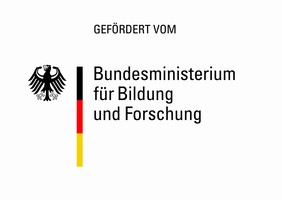
Dauer: 2019 – 2022
Gefördert vom: Bundesministerium für Bildung und Forschung (BMBF)
Kontakt: Linda Miller, Luisa Heinrich
In Zeiten der Digitalisierung und des rasanten technischen Fortschritts entstehen neue Formen von Mobilität und Verkehr. Im globalen Fokus stehen hierbei die Erforschung und Entwicklung von automatisierten Fahrzeugen mit dem Ziel, diese auf alle Verkehrssysteme weltweit vorzubereiten. Deutschland geht dabei in den kommenden drei Jahren aktiv einen Schritt in diese Richtung und forscht gezielt mit dem ebenfalls stark Automobil-orientierten Japan an den kommenden Themen der automatisierten Fahrzeugführung. Neben der technischen Umsetzung spielt die menschliche Komponente im Fahrer-Fahrzeug System eine zentrale Rolle. Das Verbundprojekt CADJapanGermany: HF erforscht gemeinsam mit deutschen (Universität Ulm, Technische Universität München, Technische Universität Chemnitz, Technische Universität Dresden und Deutsches Zentrum für Luft- und Raumfahrt) und japanischen (Universität Tsukuba, Universität von Tokio, Kumamoto Universität, Keio Universität und National Institute of Advanced Industrial Science and Technology (AIST)) Partneruniversitäten und -instituten Grundlagen des automatisierten Fahrens mit speziellem Fokus auf Human Factors und interkulturellen Einflussfaktoren. Das Ziel des Projektes liegt in der Erforschung der Interaktionen und Kommunikation mit unterschiedlichen Verkehrsteilnehmern, der allgemeinen und beruflichen Fahrausbildung sowie der Interkation zwischen Fahrer und automatisiertem Fahrzeug. Die Universität Ulm fokussiert sich auf die psychologischen Prozesse der Fahrer-Fahrzeug-Interaktion bei Übergängen zwischen Automationsstufen sowie auf die Kooperation und Kommunikation zwischen und mit automatisierten und nicht-automatisierten Fahrzeugen bei der Fahrzeug-Fahrzeug-Interaktion. Übergreifendes Ziel ist die Schaffung von Sicherheit, Akzeptanz sowie Komfort im Umgang mit automatisieren Fahrzeugen.
Interaction between automated vehicles and vulnerable road users (INTUITIVER)
Interaktion zwischen automatisierten Fahrzeugen und leicht verletzbaren Verkehrsteilnehmern (INTUITIVER)
Duration: 2018-2021
Funding by: Ministry of Science, Research and the Arts Baden-Württemberg and Ministry of Transport Baden-Württemberg – Smart Mobility research program
Cooperation Partners: Institute of Measurement, Control and Microtechnology (Prof. Dr. Klaus Dietmayer), Institute of Microwave Engineering (Prof. Dr. Christian Waldschmidt) and Institute of Media Informatics (Prof. Dr. Enrico Rukzio), Ulm University
Contact: Mirjam Lanzer, Kristin Mühl
The project aims to facilitate interactions between automated vehicles and vulnerable road users in a way that is intuitive and inspired by human communication and cooperation. It is intended to examine how automated vehicles and vulnerable road users like pedestrians or cyclists can recognise and understand the intentions of each other and how automated vehicles inform passengers about their intentions. Investigations and evaluations of proposed solutions will partly take place in the test area autonomous driving in Karlsruhe (https://taf-bw.de/). Interactions between the automated vehicle and a user, who does not drive the vehicle anymore, are the focus of our department within this project.
Cooperative interaction and goal negotiation with learning, autonomous robots (RobotKoop)
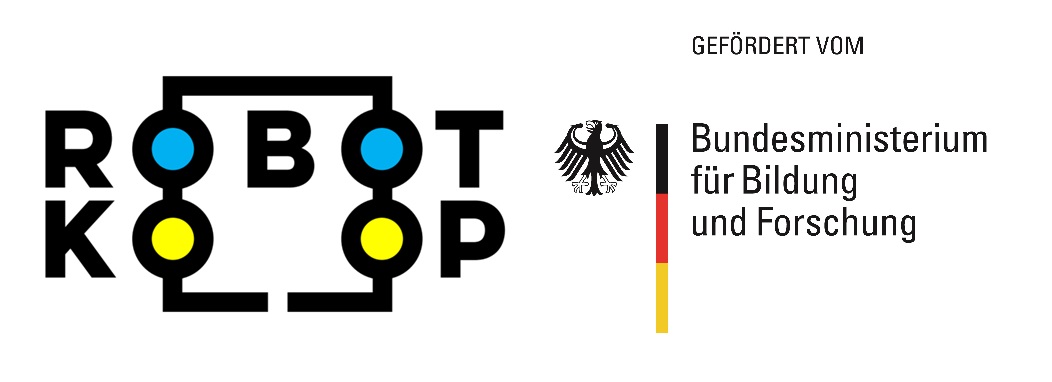
Kooperative Interaktion und Zielverhandlung mit Lernenden Autonomen Robotern (RobotKoop) - Erforschung und Entwicklung von kooperativen Interaktionsstrategien für Serviceroboter sowohl im privaten als auch im öffentlichen Bereich
Duration: 2018-2021
Funding by: Federal Ministry of Education and Research Germany (BMBF)
Cooperation Partners: Institute of Communications Engineering (Ulm University), University of Applied Sciences Ravensburg-Weingarten, InMach Intelligent Machines GmbH, ADLATUS Robotics GmbH, DB Services GmbH, dm drogeriemarkt GmbH + Co KG, Die Zieglerschen e.V., Stiftung KBZO
Contact: Johannes Kraus, Franziska Babel
The aim of the project is the development of an autonomous service robot that can learn and adapt to its tasks and environment. It should operate in close proximity to humans and be of service in two use cases. One use case comprises cleaning in public spaces (e.g. train stations, malls) and the other constitutes a health care scenario at home. For this, the service robot has to interact and communicate with humans in an effective and trustworthy way. Therefore, the role of Ulm University in the project focusses on developing a framework of the human robot interaction in the service context. Furthermore, design guidelines for service robots will be created to inspire future service robot design.
InnoSÜD

Mobility: Human-Machine Interaction
Mobilität: Mensch-Maschine Interaktion
Duration: 2018 - 2022
Funding by: Federal Ministry of Education and Research Germany (BMBF)
Kontakt: Juergen Pichen, Martin Baumann
The overall goal of the project is the development of regional strategic cooperations between science, economy and society in order to drive innovations in the context of energy, mobility, health and biotechnology and transformation management. The focus of Ulm University in this project is the evaluation of a sensor system to assess reliable driver state data. These data can serve as basis to develop adaptive human-machine interaction concepts that enhance the acceptance and trust in automated driving. The transfer from theory into practice is facilitated by providing assessed data and gained knowledge to economy and society.
For more information visit the project website
AutoMate - Automation as accepted and trustful teamMate to enhance traffic safety and efficiency

Duration: 2016-2019
Funding by: European Commission – Horizon 2020 research program
Cooperation Partners: Ulm University (Prof. Dietmayer), Offis, Broadbit Energy Technologies sro, Centro Ricerche FIAT, Continental Automotive France, Deutsches Zentrum für Luft- und Raumfahrt, Humatects, PSA, Re:Lab, Fondation Partenarial Moveotec
Contact: Juergen Pichen
AutoMate is a project focusing on the development of a „TeamMate Car“ that combines the advantages from a highly automated driving vehicle with the abilities of a human being. The highly automated car cooperates with the driver in critical situations where the automation reaches its limitations. Our department evaluates this cooperation and improves the human-vehicle interaction by taking new situation comprehension concepts into account.
Further information: http://www.automate-project.eu/
Cooperative driver-vehicle interaction (KoFFI): safe, efficient and controllable interactions with automated vehicles
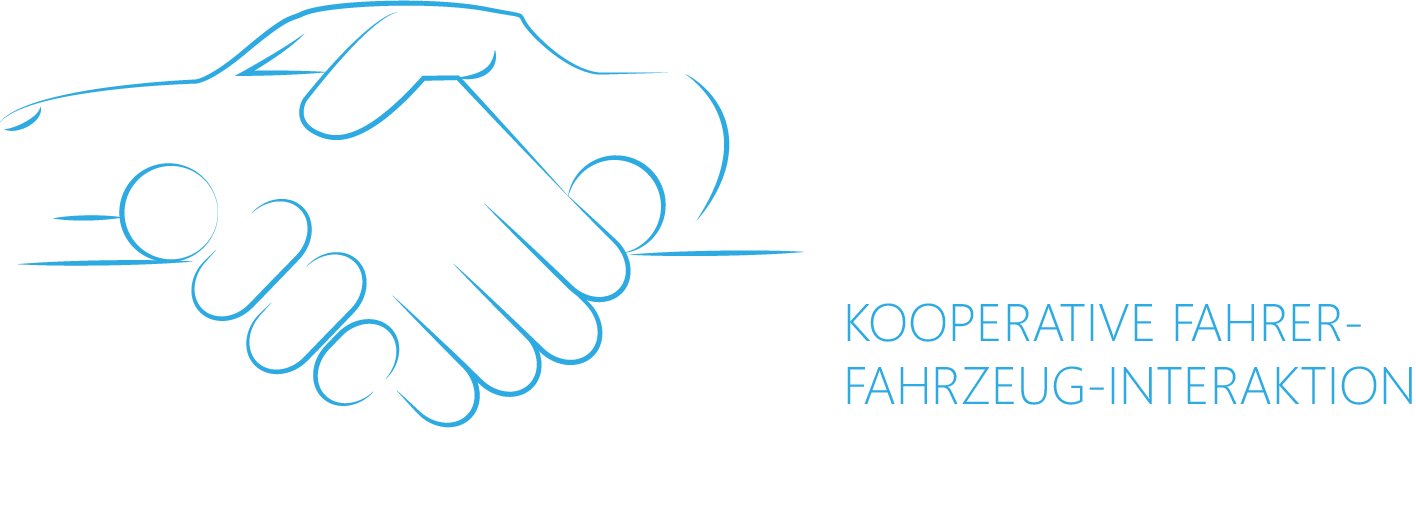
Development and evaluation of requirements, interaction concepts and context models for adaptive user interfaces
Kooperative Fahrer-Fahrzeug-Interaktion (KoFFI): Sichere, effiziente und kontrollierbare Interaktion mit autonomen Fahrzeugen
Duration: 2016-2019
Funding by: Federal Ministry of Education and Research Germany (BMBF)
Cooperation Partners: Ulm University (Prof. Dr. Michael Weber) Robert Bosch GmbH, Daimler AG, EML European Media Laboratory GmbH, Hochschule Heilbronn (Prof. Dr. Gerrit Meixner), Hochschule der Medien (Prof. Dr. Petra Grimm, Prof. Dr. Tobias Keber
Contact: Marcel Woide
The aim of the project is the development and demonstration of a holistic concept of driver-vehicle interaction. The driver and the automated vehicle will act like team players and work together in overcoming the ongoing challenges. It includes the cooperative realization of the handover of control in order to achieve a common aim in the best way. Ulm University focusses within that project on the development and evaluation of cooperative and adaptive interaction concepts as well as underlying requirements and context models.
Further information: https://www.technik-zum-menschen-bringen.de/projekte/koffi
Cooperatively Interacting Vehicles

Devoping and empirical testing of a comprehension based approach for driver-vehicle -cooperation in context of cooperatively interactive automobiles
Entwicklung und empirische Prüfung eines verstehensbasierten Modells der Fahrer-Fahrzeug-Kooperation für kooperativ interagierende Automobile
Duration: 2016-2021
Funding by: German Research Foundation (DFG), Projektantrag im SPP 1835 „Kooperativ interagierende Automobile“
Contact: Tanja Stoll
Highly cooperative and automated vehicles are not just able to perceive the environment, classify and asses situations, select and execute actions but also to share information with other traffic users. Consequently, these vehicles might obtain further or additional information that a human driver could not achieve, which leads to new challenges for the interaction between drivers and their cars as well as among various drivers. First of all, it is central to find a solution how to avoid the lack of the system´s transparency status (e.g. a vehicle‘s environment model) and the absence of predictable vehicle behaviour. Therefore research in this projects focuses on modelling a comprehension based approach for driver-vehicle-cooperation in cooperatively interactive automobiles.
Further Information: http://www.coincar.de
Explanation of Adaptive Business Processes

Post Graduate School "Cognitive Computing in Socio-Technical Systems" of Ulm University and University of Applied Sciences Ulm.
Duration: 2016-2019
Funding by: Minstry for Science, Research and Arts of the State of Baden-Württemberg
Cooperation Partners: Faculty of Computer Science, University of Applied Sciences Ulm (Prof. Dr. Christian Schlegel)
Contact: Christine Schnepf
Complex business processes, which may have to be dynamically adapted to changing circumstances during their enactment (as required in the context of Industry 4.0 processes), are neither easy to comprehend nor to trace. As an example, consider an order management process as required in the context of the production of customized or individualized goods. This project will empirically investigate both the psychological processes and structures underlying the understanding and anticipation of changing business processes. Furthermore, P5 will investigate how the need of respective process changes can be diagnosed and corresponding decisions be made. In particular, knowledge about these psychological processes will allow for the development of user-friendly algorithms and man-machine interfaces properly assisting end-users in changing business processes. In order to be able to reliably assess the current status of a business process, explanatory mechanisms will be provided. More precisely, based on formal process descriptions and their changes as well as the current process trace, simple inference procedures will be applied to create respective explanations and to present them in a user-friendly manner using different modalities.
Further information: here
Using persuasive technologies in highly automated driving to increase cooperation and driving safety

Persuasive Technologien in hochautomatisierten Fahrzeugen zur Erhöhung der Kooperation und Fahrsicherheit
Duration: 2016-2019
Funding by: Carl Zeiss Foundation
Cooperation Partners: Institute of Media Informatics, Ulm University (Prof. Dr. Enrico Rukzio)
Contact: Philipp Hock
Highly automated driving aims to radically increase driving safety because human errors account for over 90 percent of severe traffic accidents. Even when automation is evolved enough to drive safer than human beings, it is assumed that the human driver could still request the control over the vehicle. Reasons for this may be a lack of trust, misunderstanding or a disagreement between the own driving style and the vehicle's driving style. In such cases, convincing the driver to keep the automation enabled increases traffic safety. Therefore, the aim of this research project is investigating technical systems to increase the usage of automation.
F3 Driver - Vehicle - Research

Duration: 2013-2017
Funding by: Carl Zeiss Foundation
Contact: Martin Baumann, Kristin Mühl
F3 brings together researchers from Ulm University who are all driven by the vision of future automated cars which move within an intelligent traffic infrastructure cooperatively with other automated and human-controlled vehicles. Those vehicles have to provide the highest degree of safety for own passengers and other traffic participants and at the same time contribute to global traffic efficiency.
F3 combines the competencies of participating researchers from the areas of advanced driver assistance, automated driving, and cooperative driving functions.
Driven by Trust

Contact: Johannes Kraus
In the process of automated driving becoming more and more part of every day’s reality, the role of the automated vehicle changes from a substitute for the human to a team player sharing the driving tasks on equal terms with the human driver.
Hereby, calibrated trust builds the basis for efficient and safe interaction with highly automated vehicles. In order to prevent both mis- and disuse of driving automation, this research project investigates the antecedents and process dynamics, in which trust towards a specific automated system is established. A process model integrating influencing factors for both, the driving automation and the human operator is developed, empirically tested and used to predict trust dynamics over time and in the face of system failures. Findings will provide insights for the design of driving automation and the associated interfaces.
Anticipation in Dynamic Driving Situations

Contact: Kristin Muehl
Anticipatory driving is an essential precondition for increasing the safety in traffic and avoiding conflicts and accidents. The anticipation of future behavior of the own vehicle and of other traffic participants enables an optimal preparation of the upcoming situation by increasing the time and space of action. In order to support drivers in anticipating relevant events, knowledge about the underlying cognitive processes of anticipation in dynamic traffic situations is required. Previous research predominantly focusses on visual cues which automatically activate knowledge structures and prior experiences of the long-term memory and trigger the prediction of prospective actions. Dynamic changes of the environment or motion extrapolation are not considered in previous theoretical assumptions. Therefore, a cognitive model of anticipation based on situation comprehension is going to be developed and evaluated. Pivotal findings will be the basis for designing anticipatory assistance systems.
Developing a Model-Based Lane Change Decision Aid System by Integrating Driver Uncertainty
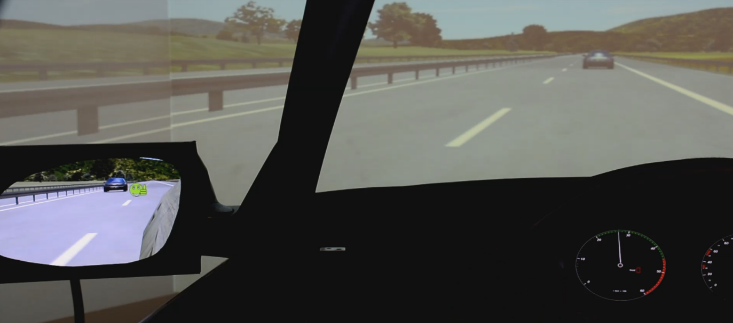
Contact: Fei Yan
Driver uncertainty about the current lane change situation can substantially prolong the decision-making process, potentially leading to dangerous lane change maneuvers. In addition, the assistance that is not adaptive to drivers’ uncertainty states may decrease driver trust in assistance systems and further result in the disuse of such systems. Aiming to develop a Model-Based Lane Change Decision Aid System (MBLCDAS) integrating driver uncertainty during decision-making, driver uncertainty has been studied in a driving simulator for specific lane change scenarios on two-lane motorways. Then based on the empirical data, a probabilistic model of driver uncertainty that can classify diver’s uncertainty states during lane change situations as either “certain” or “uncertain” has been developed. After implementing the model of driver uncertainty and the corresponding HMI in the driving simulator, the developed MBLCDAS has been then evaluated.
